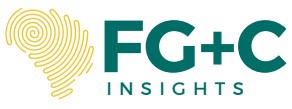Ghana’s financial services sector consists of 4 independently regulated sub-sectors. The government of Ghana has progressively developed the sector to provide firm support to the country’s economy, especially through the establishment of the Financial Stability Council which offers comprehensive sectoral advice to the presidency, ensuring the country’s robust financial system.
The Banking Sector
The banking sector, regulated by the Bank of Ghana, houses 23 universal banks, 26 savings and loans companies, 134 deposit-taking microfinance, 401 foreign exchange bureaus and several other financial institutions.
The sector’s key indicators evidenced growth in 2022 compared to 2021. In the central bank’s 2022 annual report, total deposits was GHS166.5 billion, total assets was GHS220.9 billion indicating a year-on-year growth of 22.9% and non-performing loans reduced to 14.8%. The sector’s capital adequacy ratio stood at 16.6% by the end of 2022.
In recent times, the banking sector has proven to be more resilient than ever. Its clean-up of 2017/18 and the December 2022 Domestic Debt Exchange Programme (DDEP) posed threats to the solvency of many banks. Regardless, these banks have successfully re-strategized and operated within the regulatory framework of the Banks and Specialised Deposit-Taking Institute Act 2018 (Act 930), other supporting legislation and corporate governance codes.
The Securities Industry
The Securities Industry Act 2016 (Act 929) established the Securities and Exchange Commission to govern the securities industry. The sector is made up of the capital market and money market.
The Ghana Stock Exchange (GSE) provides the facility and framework for trading in the capital market. GSE lists shares, sovereign bonds (and notes), municipal bonds (and notes), corporate bonds (and notes); and closed-end unit trusts and mutual funds. The Ghana Alternative Market, under GSE is aimed at small and medium-sized enterprises.
GSE recorded 34 listed companies in December 2023. By March 2024, market capitalisation was GHS77.7 million and trade volume was 208 million, valued at GHS 313.4 million. The most traded sector was the information technology sector.
The sector’s participants include mutual funds, custodians, fund managers and broker-dealers.
Insurance Sector
The National Insurance Commission (NIC) is the regulator of Ghana’s insurance sector. NIC issues three categories of licenses: insurance, reinsurance, and innovative insurance; to give room for financial technology innovations in insurance. The primary regulatory framework of the sector is the Insurance Act 2021 (Act 1061).
Non-life insurance is the most popular insurance group in Ghana, with 28 licensed company, and contributing more than half of the GHS8 billion gross premiums recorded by the NIC at the end of 2023. Other participants of the sector include 21 life insurance companies, 23 re-insurance companies and 116 brokers.
Insurance penetration in Ghana as of 2021 was 1%, it is hoped that the introduction innovative insurance license and the growth of microinsurance would increase the penetration.
Pensions Sector
Ghana’s pensions sector is regulated by the National Pensions Regulatory Authority (NPRA). There is a three-tier private-public pension system. Tier 1 is mandatory, publicly administered and contributed by all formal sector workers on a pay-as-you-go basis. The Social Security and National Insurance Trust (SSNIT) is the administrator public pensions. Tier 2 is mandatory and ran by private pensions providers, whereas Tier 3 is voluntarily and private contribution which is taxable.
Per the 2022 NPRA annual report, assets under management totalled GHS46.60 billion, contributed by 1.8 million workers as against 200,000 pensioners. The number of retirees recorded in 2022 is half of the number in 2018.
As of March 2023, the NPRA, in accordance with National Pensions Act 2016 (Act 766) had issued licenses to 41 pensions fund managers, 18 pensions custodians, 28 corporate trustees.
Innovations in the Financial Services Sector
Prior to the landmark year of 2020, financial technology (“fintech”) innovations were rather unpopular, however post lockdown, Ghana has become more appreciative of the need for fintech advancements. The highlight of this being the regulatory sandbox by the Bank of Ghana, which relaxes requirements to allow the sector’s stakeholders to experiment ideas without seeming regulatory red tapes. Another famous regime is the innovation insurance license issued by the insurance regulator. Between 2022 and 2023 alone, the total transaction value via fintechs had increased by 78.4%.

